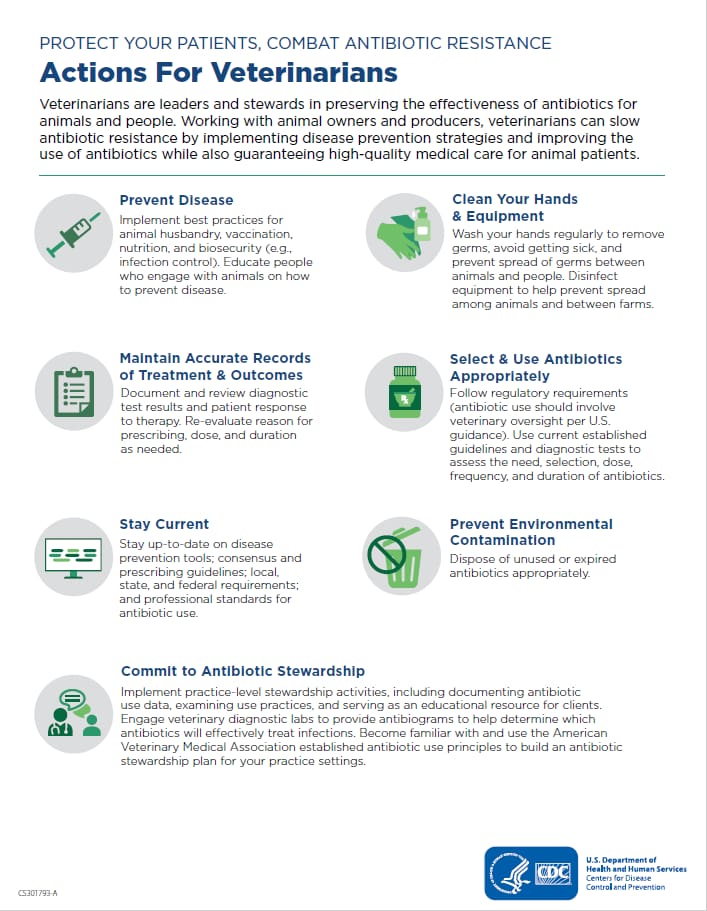Veterinarian Practices: Actions to Combat Resistance

Veterinarians are leaders and stewards in preserving antibiotics and antifungals for animals and people. Working with animal owners and producers, you can slow antimicrobial resistance by implementing disease prevention strategies and improving the use of antibiotics and antifungals while also guaranteeing high-quality medical care for your animal patients.
Prevent Disease
Implement best practices for animal husbandry, vaccination, nutrition, and biosecurity. Educate people who engage with animals on how to prevent disease. Learn how carbapenem-resistant Enterobacterales (CRE) in companion animals can affect your veterinary practice and how to implement infection prevention practices to keep your patients and pet owners healthy.
Clean Your Hands & Equipment
Wash your hands regularly to remove germs, avoid getting sick, and prevent the spread of germs between animals and people. Disinfect equipment to help prevent spread among animals and between farms.
Maintain Accurate Records of Treatment & Outcomes
Document and review diagnostic test results and patient response to therapy. Re-evaluate reason for prescribing, dose (amount), and duration (period of time) as needed.
Select & Use Antibiotics and Antifungals Appropriately
Follow regulatory requirements (antibiotic use should involve veterinary oversight per FDA guidance). When available, use current established guidelines and diagnostic tests to assess the need, selection, dose, frequency, and duration of antibiotics.
Stay Current
Stay up to date on disease prevention tools; consensus and prescribing guidelines; local, state, and federal requirements; and professional standards for antibiotic and antifungals use.
Prevent Environmental Contamination
Dispose of unused or expired antibiotics and antifungals appropriately.
Commit to Antibiotic and Antifungals Stewardship
Implement practice-level stewardship activities, including documenting antibiotic and antifungal use data, examining use practices, and serving as an educational resource for clients. Engage veterinary diagnostic labs to provide antibiograms to help determine which antibiotics will effectively treat infections. Become familiar with and use the American Veterinary Medical Association (AVMA) established antibiotic use principles to build a stewardship plan for your practice settings:
